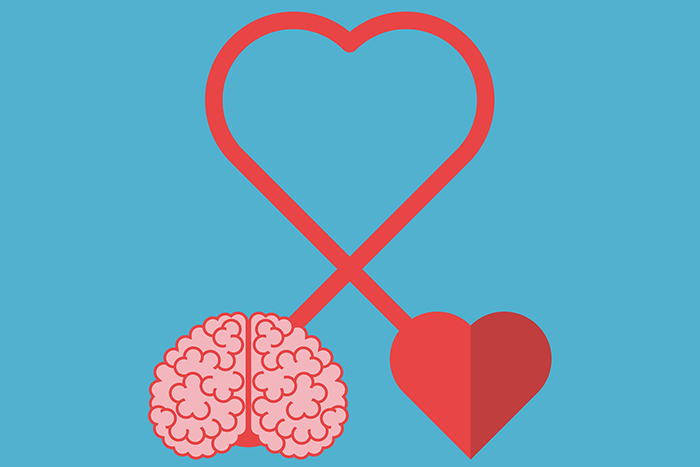How Stress Impacts the Heart
Stress usually presents in two ways: acute or chronic.
Acute stress comes on suddenly. Acute stress can be linked to a heart attack or stroke that occurs in response to a traumatic event or something we are not ready to hear or see, Dr. Mehta says.
Research shows postmenopausal women are more susceptible to acute stress and its impact on heart health. Broken heart syndrome is an example. The condition occurs after a highly stressful event, like the death of a spouse or a devastating health diagnosis.
If left untreated, heart failure can result. One feels like they are having a heart attack, with all the traditional symptoms. Clinical tests usually show no blockage in heart vessels, even though heart muscle function is reduced, she says.
Broken heart syndrome is most common in women after menopause, who account for 85% of cases.
Chronic stress is a burden our minds and bodies carry over time. The impact accumulates and is associated with cardiovascular disease. People living in constant stress often eat poorly, don’t exercise and don’t sleep well. They may experience insulin resistance, high blood pressure and the higher levels of hormones like cortisol, which can cause inflammation.
We don’t fully understand how chronic stress impacts heart health over time, but it seems to worsen heart health risk factors.
How to Minimize Heart-Damaging Reactions to Stress
Identifying stressors is the first step to managing stress that can damage the heart. Write them down, Dr. Mehta says. Recognize what might derail you, keep you from joy or prevent you from doing what you what to accomplish.
Then create a plan to address each one.
One key to stress management is to bake it into your day. You can’t plan to manage home life, eat dinner and then try to relax by 8 or 9 pm, Dr. Mehta says. What’s more likely is that you go to bed without calming your mind and body.
She recommends taking a timeout a few times a day. Practice deep breathing and relaxation with an app or other tool. A RESPeRATE device provides guided slow, deep breathing for people with hypertension. The FDA-approved portable electronic tool helps reduce stress and lowers blood pressure.
“It’s very important to find ways to manage your energy and relax so that you can handle everything that comes at you in a day,” Dr. Mehta says. She recommends:
- Exercise. Aim for 20-30 minutes of moderate movement a day. Create a plan. Walk your neighborhood, take a virtual yoga class, or lift weights at the gym.
- Nutrition. Pack healthy snacks for work and meal plan to curb poor food choices. If you know Wednesday will be a crazy day, bring carrots, celery and apples to eat instead of chips. Try the Mediterranean diet.
- Relaxation. Schedule time to relax. Put it on your calendar and “disconnect from the stressors of your life,” Dr. Mehta says. Deep breathing, guided meditation with an app, listening to music, progressive muscle relaxation and yoga all promote relaxation.
- Know your #s. Talk to your doctor and understand your heart health. Is your blood pressure high? How’s your cholesterol? Are you getting enough sleep? Set health targets.
Dr. Mehta is researching the relationship between mental stress and cardiovascular health – especially how women’s hearts react to stress.




